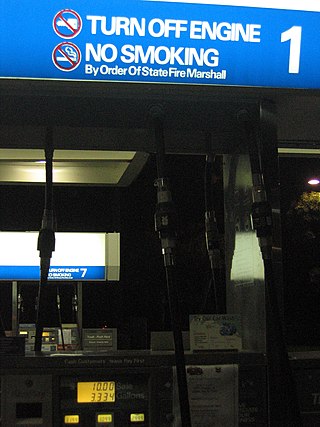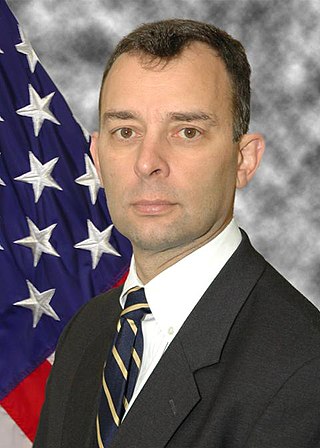CPO may refer to:
CPO may refer to:
A chief financial officer (CFO), also known as a treasurer, is an officer of a company or organization who is assigned the primary responsibility for making decisions for the company for projects and its finances . The CFO thus has ultimate authority over the finance unit and is the chief financial spokesperson for the organization.
Marshal is a term used in several official titles in various branches of society. As marshals became trusted members of the courts of Medieval Europe, the title grew in reputation. During the last few centuries, it has been used for elevated offices, such as in military rank and civilian law enforcement.

HM Customs and Excise was a department of the British Government formed in 1909 by the merger of HM Customs and HM Excise; its primary responsibility was the collection of customs duties, excise duties, and other indirect taxes.

A fire marshal, in the United States and Canada, is often a member of a state, provincial or territorial government, but may be part of a building department or a separate department altogether. Fire marshals' duties vary but usually include fire code enforcement or investigating fires for origin and cause. Fire marshals may be sworn law enforcement officers and are often experienced firefighters. In larger cities with substantially developed fire departments the local fire departments are sometimes delegated some of the duties of the fire marshal.

The district magistrate, also known as the district collector or deputy commissioner, is a career civil servant who serves as the executive head of a district's administration in India. The specific name depends on the state or union territory. Each of these posts has distinct responsibilities, and an officer can assume all of these roles at once. The district magistrate is primarily responsible for maintaining law and order, while the district collector focuses on revenue administration, and the deputy commissioner is in charge of overseeing developmental activities and coordinates government departments. Additionally, they also serve as election officers, registrar, marriage officer, licensing authority, and managing disaster responses, among other things. While the specific scope of duties may vary from state to state, they are generally similar. The district magistrate comes under the general supervision of divisional commissioner.
CCO or cco may refer to:

The Customs and Excise Department (C&ED) is a government agency responsible for the protection of the Hong Kong Special Administrative Region against smuggling; the protection and collection of revenue on dutiable goods on behalf of the Hong Kong Government; the detection and deterrence of drug trafficking and abuse of controlled drugs; the protection of intellectual property rights; the protection of consumer interests; and the protection and facilitation of legitimate trade and upholding Hong Kong's trading integrity.

The International Association of Privacy Professionals (IAPP) is a nonprofit, non-advocacy membership association founded in 2000. It provides a forum for privacy professionals to share best practices, track trends, advance privacy management issues, standardize the designations for privacy professionals, and to provide education and guidance on career opportunities in the field of information privacy. The IAPP offers a full suite of educational and professional development services, including privacy training, certification programs, publications and annual conferences. It is headquartered in Portsmouth, New Hampshire.

Kochi City Police (KCP), officially the Kochi City Police , is the police force of the Indian city of Kochi. The force is headed by a Police Commissioner, an IPS officer. The city police was reorganized as Metro Police force, on 1 April 1966, after forming City Corporation of Cochin. Kochi City Police is one of the most advanced police force, considering the strategic importance of the city.
DPO may refer to:

Hugo Teufel III is an American lawyer and former government official.
The Chief Privacy Officer (CPO) is a senior level executive within a growing number of global corporations, public agencies and other organizations, responsible for managing risks related to information privacy laws and regulations. Variations on the role often carry titles such as "Privacy Officer," "Privacy Leader," and "Privacy Counsel." However, the role of CPO differs significantly from another similarly-titled role, the Data Protection Officer (DPO), a role mandated for some organizations under the GDPR, and the two roles should not be confused or conflated.

In the United States, a sheriff is the chief of law enforcement of a county. Sheriffs are usually either elected by the populace or appointed by an elected body.

United States Department of Defense Police are the uniformed civilian security police officers of the United States Department of Defense (DoD), various branches of the United States Armed Forces, or DoD agencies.

The Texas Department of Licensing and Regulation (TDLR) is a state agency of Texas.
Jules Polonetsky is an American lawyer and internet privacy expert from Brooklyn, New York, who currently serves as Chief Executive Officer of the Future of Privacy Forum. Polonetsky is co-editor of the Cambridge Handbook on Consumer Privacy, with co-editors Omer Tene and Evan Selinger.

The Azad Kashmir Police(آزاد کشمیر پولیس) or Azad Jammu and Kashmir Police (AJKP) is responsible for law enforcement in the Azad Kashmir region administered by Pakistan. It is presently headed by Inspector-General of Police, Sohail Habib Tajik (PSP), and headquartered in the Central Police Office (CPO) Muzaffarabad, Azad Kashmir.
The Campus Privacy Officer (CPO) is a position within a post-secondary university that ensures that student, faculty, and parent privacy is maintained. The CPO role was created because of growing privacy concerns across college campuses. The responsibilities of the CPO vary depending on the specific needs of the campus community. Their daily tasks may include drafting new privacy policies for their respective college campus, creating a curriculum that informs teachers and students about privacy, helping to investigate any privacy breaches within the university, and ensuring that the university is abiding by current state and federal privacy laws. CPOs are also responsible for connecting with student and faculty groups across the entire campus in order to understand the privacy concerns of the campus. The role of CPO is an expanding profession within the United States and other countries, such as Canada and South Africa. There are numerous organizations that exist to provide training for CPOs and support them.
The Australian Health Practitioner Regulation Agency (AHPRA), infrequently spelt as the Australian Health Practitioners Regulation Agency is a statutory authority founded in 2010 which is responsible, in collaboration with the Medical Board of Australia, for registration and accreditation of health professionals as set out in the Australian legislation called the National Registration and Accreditation Scheme. As of 2018, approximately 586,000 health professionals were registered with the AHPRA, containing 98,400 medical practitioners (which includes general practitioners, medical specialists and some hospital workers), and 334,000 nurses and midwives. This rose to 825,720 registered health professionals in 2021.